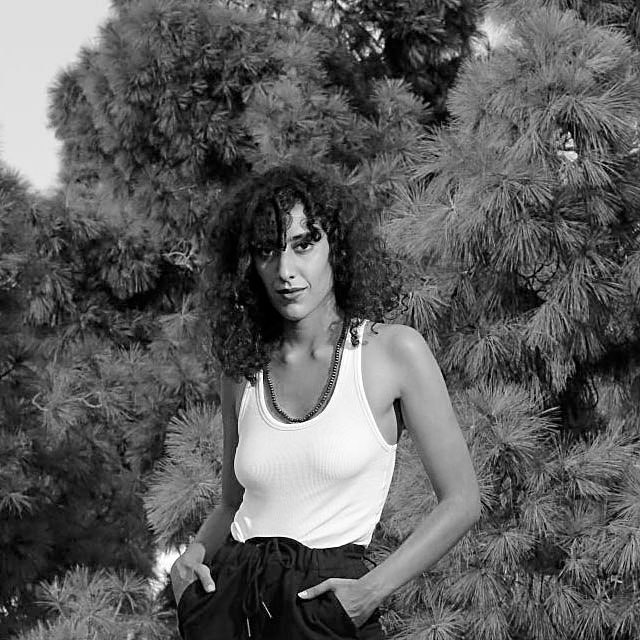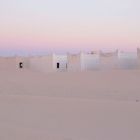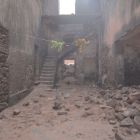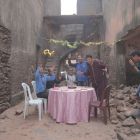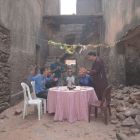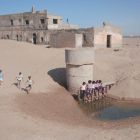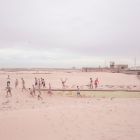Imane Djamil
80 Miles to Atlantis
Through her approach, focused on new perspectives and shaped by intercultural experiences, Imane Djamil questions the future of the world’s transition zones. She seeks the very fine line between “reality and the sublime” to establish a dialogue between history, fiction and territory in what she calls “Mental Geographies”. She has exhibited her work in Morocco and abroad since 2013, and taken part in several international residencies.
80 Miles to Atlantis is the second part of her work on the historic coastline of Tarfaya, a Saharan city that lies across the sea from the Canary Islands. In fact, the closeness of the Spanish archipelago, where the mythical city of Atlantis is thought have been located, inspired the name of this series. In 360 BC, the dialogues of Greek philosopher Plato, Timaeus and Critia, described the mythical state of Atlantis as an almost Utopian civilisation, found on a lush and resource-rich archipelago. Plato claimed that these islands existed 9,000 years before his time and that their history had been passed on orally by his grandfather. While Atlantis was submerged by the ocean after falling out of favour with the Gods in Plato’s story, Tarfaya’s coastline is being engulfed by sand not for offending a higher entity, but because of natural phenomena combined with the State’s apathy towards preserving its cultural heritage. The abandonment of this city and its heritage is further highlighted by the desertification of the Sahara, which is prompting populations to flee to urban areas because they can no longer access an adequate water supply.
The series questions the multiple symbolic registers of the built and natural landscape, the reconsideration of colonial architecture over time, and the breakdown of boundaries between myth and reality. Her work explores themes of striking relevance to today’s world: the quest for symbiosis between urban development and the natural environment, the failure of the State to support marginalised communities, and the difficult reconciliation with a colonial past. Imane Djamil offers a fresh perspective and stands out for her use of a “docu-drama” style to better express the reality she views through her lens, combining it with fictitious scenarios to strengthen her message through a form of artistic expression.
INFO POINT
Tourist Information Baden
Brusattiplatz 3, 2500 Baden bei Wien
Open during the photo festival:
Monday – Friday: 10.00 – 16.00 hrs
Saturday: 13.00 – 17.00 hrs (June – August)
Saturday: 13.30 – 16.00 hrs (September – October)
Closed on Sundays and public holidays!
Tel: +43 (0) 2252 86800 600
info@baden.at
Festivalbüro La Gacilly-Baden Photo
Tel: +43 (0) 2252 42269
festival@lagacilly-baden.photo

